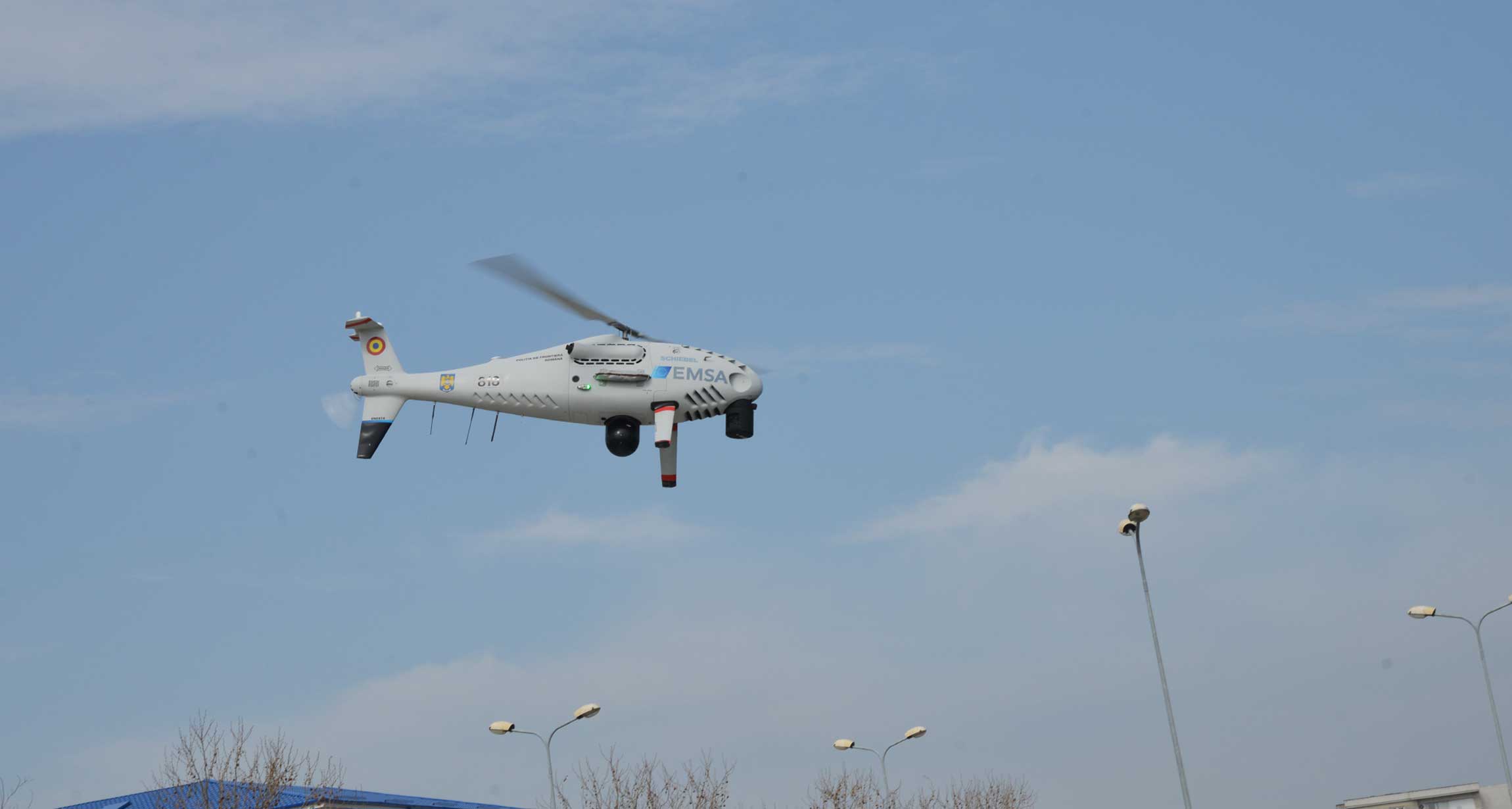Emissions monitoring campaign kicks off over the Baltic Sea using specially equipped drones
Date
Together with the Federal Maritime and Hydrographic Agency, the European Maritime Safety Agency (EMSA) is conducting a large-scale emissions monitoring campaign using remotely piloted aircraft, scheduled to begin later this month. Over a three-month period, a specially equipped drone will measure the sulphur content in the exhaust plumes of ships transiting the Baltic Sea in order to be able to detect violations of the applicable limits. At the same time, image data will also be collected for hydrographic surveying purposes.

The remotely piloted aircraft will take off from the German Armed Forces' Staberhuk site on the east coast of Fehmarn and fly over selected ships operating in the Fehmarn Belt and the Kadetrinne/Kadetrenden in order to measure the sulphur content of their exhaust plumes using specific sensors. In this way, it will be possible to infer the sulphur content of the ship’s fuel, which must not exceed a level of 0.10% in the Baltic Sea Emission Control Area (SECA).
The measurement results are made available in real time to responsible authorities in all European ports via THETIS-EU, the Port State Control information system operated by EMSA. In this way, ships can be specifically selected for inspection at their next port of call and samples of the fuel can be taken. If violations of the strict sulphur limits can be proven, those responsible face heavy
penalties.
In addition to ship exhaust gas measurements, multispectral aerial imagery is acquired. For shallow waters, bathymetric values can be extracted from images. Furthermore, imagery allows for three-dimensional mapping of the shore zone. The drone survey campaign will investigate whether aerial imagery can provide complementary information for the German hydrographic surveying service.
The drone flights are operated by the Norwegian company Nordic Unmanned on behalf of EMSA. The sensor technology and analysis capabilities for the emission measurements is supplied by the Danish company Explicit ApS.
ABOUT EMSA
The European Maritime Safety Agency (EMSA) is a decentralised agency of the EU, based in Lisbon, Portugal. EMSA serves the EU’s maritime interests for a safe, secure, green and competitive maritime sector, delivering value for member states through support for pollution prevention and response, maritime surveillance, safety and security, digitalisation and the provision of integrated maritime services, and technical assistance.
Remotely Piloted Aircraft System (RPAS) services are offered free of charge to all EU countries by EMSA. They have been developed to assist in maritime surveillance operations and ship emission monitoring and can operate in all seas surrounding the European Union. RPAS services can provide support to traditional coast guard functions, including search and rescue and pollution prevention and response. The services are offered to member countries individually and as part of EMSA’s regional RPAS strategy, which allows multiple coast guard functions in several EU countries to be supported by one or more RPAS services.See where EMSA is flying.
ABOUT BSH
BSH is Germany's central maritime authority. Around 1,000 employees from more than 100 professions work at the two headquarters in Hamburg and Rostock and on five ships. The tasks focus on, among other things, the promotion, safety and monitoring of maritime navigation, research and collection of long data series in the field of oceanography and marine chemistry, the water level forecasting service as well as nautical hydrography, within the framework of which official nautical charts are produced. In order to continuously improve the compatibility of protection and use of the seas and to continuously increase knowledge about the seas, the BSH works in maritime application-oriented research and on the development of products and services.
Investigations and provision of data on sea state measurements in offshore wind farms and as well as the development of sound measurement networks in the North Sea and Baltic Sea and the provision of data and technical information on impulse sound in the sea are examples of this. The development of technologies for measuring ship emissions in the air is also part of this. The BSH Navigation and Communication System Laboratory provides a test environment for complex navigation and communication systems.
Any requests for further information can be sent to: information@emsa.europa.eu
Files
-
Categories
-
Tags
